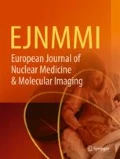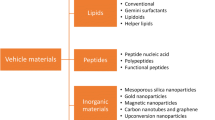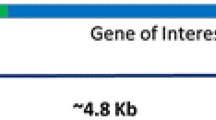Abstract.
Human thyroperoxidase (hTPO) is critical for the accumulation of iodide in thyroid tissues. Poorly differentiated and anaplastic thyroid tumours which lack thyroid-specific gene expression fail to accumulate iodide and, therefore, do not respond to iodine-131 therapy. We consequently investigated whether transfer of the hTPO gene is sufficient to restore the iodide-trapping capacity in undifferentiated thyroid and non-thyroid tumour cells. The human anaplastic thyroid carcinoma cell lines C643 and SW1736, the rat Morris hepatoma cell line MH3924A and the rat papillary thyroid carcinoma cell line L2 were used as in vitro model systems. Employing a bicistronic retroviral vector based on the myeloproliferative sarcoma virus for the transfer of the hTPO and the neomycin resistance gene, the C643 cells and SW1736 cells were transfected while the L2 cells and MH3924A cells were infected with retroviral particles. Seven recombinant C643 and seven SW1736 cell lines as well as four recombinant L2 and four MH3924A cell lines were established by neomycin selection. They were studied for hTPO expression using an antibody-based luminescence kit, followed by determination of the enzyme activity in the guaiacol assay and of the iodide uptake capacity in the presence of Na125I. Genetically modified cell lines expressed up to 1,800 times more hTPO as compared to wild type tumour cells. The level of hTPO expression varied significantly between individual neomycin-resistant cell lines, suggesting that the recombinant retroviral DNA was integrated at different sites of the cellular genome. The accumulation of iodide, however, was not significantly enhanced in individual recombinant cell lines, irrespective of low or high hTPO expression. Moreover, there was no correlation between hTPO expression and enzyme activity in individual cell lines. The transduction of the hTPO gene per se is not sufficient to restore iodide trapping in non-iodide-concentrating tumour cells. Future studies will have to concentrate on the possible expression of enzymatically active proteins or the transfer of multiple genes involved in iodide trapping.
Similar content being viewed by others
Author information
Authors and Affiliations
Additional information
Received 8 December and in revised form 29 January 2001
Electronic Publication
Rights and permissions
About this article
Cite this article
Haberkorn, U., Altmann, A., Jiang, S. et al. Iodide uptake in human anaplastic thyroid carcinoma cells after transfer of the human thyroid peroxidase gene. Eur J Nucl Med 28, 633–638 (2001). https://doi.org/10.1007/s002590100507
Published:
Issue Date:
DOI: https://doi.org/10.1007/s002590100507




